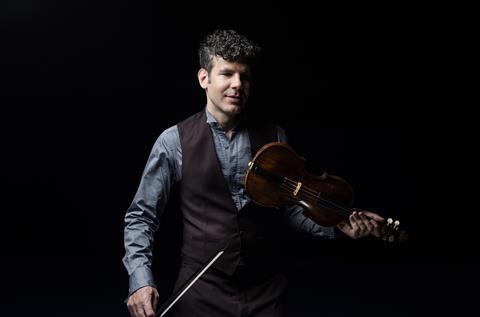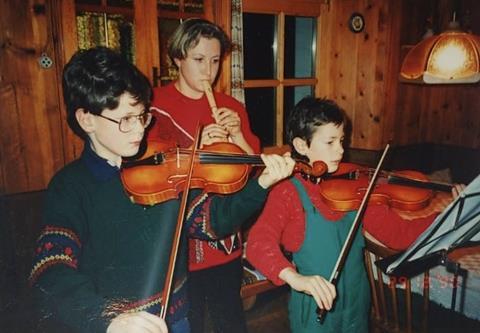The Italian violinist on his journey to becoming a Baroque specialist and the benefits of having a range of influences

Discover more Featured Stories like this in The Strad Playing Hub.
Read more premium content for subscribers here
I was lucky to have basically grown up in a music school as my father was the director of one in our home town. My brothers and I were there every day. It was great, but it also meant that out of fear of seeming nepotistic, our dad would often give us the new, less experienced teachers! So mine changed a lot during that time. My experience of music back then was very joyful, but in some waysrg Egger, my teacher in Bolzano, who helped me with that. I was with him for seven years and he really sorted me out technically. Something I only realised afterwards, when I got to London, was how important it is to be your own teacher. With Georg I was always hoping that he would do what I had to do. In London, when I studied at the Guildhall School, everything was so fast-paced that it became essential to build my own approach to music.
I think the time of specialisation is over
Although I came to London to study modern violin, it was there that I discovered my love for Baroque violin. And I’ve never looked back! Rachel Podger was a huge influence on me, and I kept on my lessons with her for two years after I left London to go to France. My teacher at the Paris Conservatoire, Patrick Bismuth, was wild and we disagreed on so many things, but it was formative in pushing me to the limits, both technically and musically. Rachel encouraged me to see as many different teachers as possible, and it was good for me to spend those two years travelling around and meeting everyone I could. I think it is vital to have as many influences as you can, especially in the Baroque world where there are so many schools of thought.

I would also recommend travelling a lot as a musician, playing in different countries and with various groups. All those cultures will have their own ways of rehearsing and speaking about music. There was always a mystery around Baroque playing in France, as if it was a little untouchable. But now that I have lived there for so long, I feel I have become somewhat authorised to play French music in my own way!
For young musicians wanting to specialise in Baroque playing, my one piece of advice is to keep playing the modern violin and also immerse yourself deeply in 17th-century music. I think the time of specialisation is over, and you now see excellent modern players who perform 18th-century music so well. It’s about understanding the style, no matter the instrument you play on. But we need to know where it all came from. That’s why it’s important to get familiar with the music before Bach, Vivaldi and Corelli. The main thing is always to have in mind how you want to sound, what the piece you are playing means to you, and why you are playing it.
INTERVIEW BY RITA FERNANDES
Discover more Featured Stories like this in The Strad Playing Hub.
Read more premium content for subscribers here
The number one source for playing and teaching books, guides, CDs, calendars and back issues of the magazine.
In The Best of Technique you’ll discover the top playing tips of the world’s leading string players and teachers. It’s packed full of exercises for students, plus examples from the standard repertoire to show you how to integrate the technique into your playing.
The Strad’s Masterclass series brings together the finest string players with some of the greatest string works ever written. Always one of our most popular sections, Masterclass has been an invaluable aid to aspiring soloists, chamber musicians and string teachers since the 1990s.
American collector David L. Fulton amassed one of the 20th century’s finest collections of stringed instruments. This year’s calendar pays tribute to some of these priceless treasures, including Yehudi Menuhin’s celebrated ‘Lord Wilton’ Guarneri, the Carlo Bergonzi once played by Fritz Kreisler, and four instruments by Antonio Stradivari.






































No comments yet